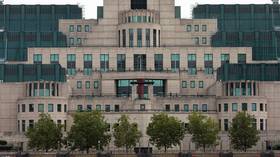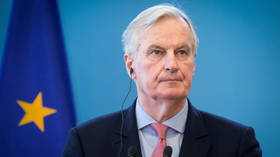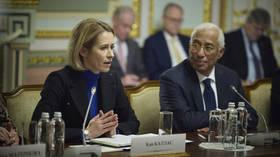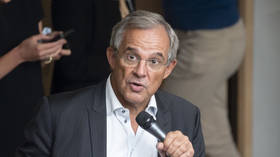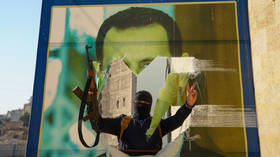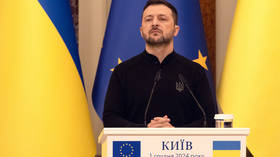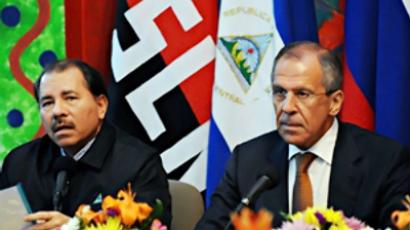Despite some misgivings, Russia upbeat on US START progress
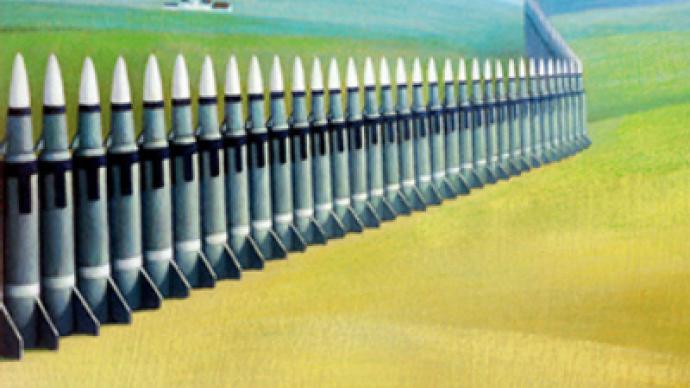
The US Senate International Affairs Committee on Thursday approved a resolution recommending the ratification of the new START treaty, but there are still more hurdles to clear.
Russian Defense Minister Anatoly Serdyukov, who was in Washington this week meeting with his American counterpart, expressed his satisfaction over the decision to send the new US-Russian Strategic Arms Reductions Treaty for ratification by the Senate.
“Certainly, we approve of the decision by the Senate committee on foreign relations to approve and send the START treaty for ratification by the entire house,” the Russian defense minister told Russian journalists in Washington following his meeting with US Defense Secretary Robert Gates.
Russian Foreign Ministry spokesman Andrey Nesterenko echoed Serdyukov’s sentiments back in Moscow when he called approval of START “a very important step” by the US Senate's Committee on Foreign Relations.
What is the Doomsday Clock?
The Doomsday Clock is a symbolic timepiece face that has been maintained since 1947 by the board of directors of the Bulletin of the Atomic Scientists at the University of Chicago. The closer the hands of the clock get to midnight, the closer the international community gets to catastrophe. As of January 14, 2010, the Doomsday Clock was moved back to six minutes to midnight. Since its inauguration, the time on the clock has changed a total of 19 times, reflecting political and environmental changes.
Originally, the clock represented the threat of a global nuclear holocaust, but since 2007 it has also reflected the threat of global warming and “new developments in the life sciences and nanotechnology that could inflict irrevocable harm.”
Here is a passage taken from an article in The Bulletin on January 14, 2010 when the clock went back one minute to 11:54:
"We are poised to bend the arc of history toward a world free of nuclear weapons. For the first time since atomic bombs were dropped in 1945, leaders of nuclear weapons states are cooperating to vastly reduce their arsenals and secure all nuclear bomb-making material. And for the first time ever, industrialized and developing countries alike are pledging to limit climate-changing gas emissions that could render our planet nearly uninhabitable.
These unprecedented steps are signs of a growing political will to tackle the two gravest threats to civilization – the terror of nuclear weapons and runaway climate change. This hopeful state of world affairs leads the boards of the Bulletin of the Atomic Scientists – whichh include 19 Nobel laureates – to move the minute hand of the Doomsday Clock back from five to six minutes to midnight. By shifting the hand back from midnight by only one additional minute, we emphasize how much needs to be accomplished, while at the same time recognizing signs of collaboration among the United States, Russia, the European Union, India, China, Brazil, and others on nuclear security and on climate stabilization.
Beginning with the joint letter of Presidents Barack Obama and Dmitri Medvedev of April 1, 2009, a growing partnership between the United States and Russia is resulting in nuclear arms negotiations that could bring down our deployed strategic warheads from more than 2,000 to about 1,500 warheads each. To put this in perspective, just a little more than a year ago, tensions over actions on Russia's borders – sparring over Georgia and US missile defense systems in Eastern Europe – threatened to push each country into hostile corners. Instead, this bilateral relationship – perhaps the most important for nuclear disarmament – is on the mend…"
“A very important step was made in Washington yesterday on the way toward implementing the plan to cut strategic offensive weapons,” Nesterenko told Russian media on Friday.
The spokesman then mentioned that START is an agreeable document because it is based on “parity” between the signatories, while maintaining the security interests of both sides.
START “was developed as a treaty that rests strictly on a parity basis and meets the security interests of both sides. Additionally, its approval is already having a positive impact on international stability and security in general, while its implementation will strengthen the regime of nonproliferation of nuclear weapons,” he said.
Meanwhile, Mikhail Margelov, chairman of the Federation Council's International Affairs Committee
said Moscow and Washington may be able to ratify the New Strategic Arms Reduction Treaty simultaneously.
“Significantly, ratification will be of decisive importance for continuing the 'reset' in Russian-American relations,” Margelov told Interfax on Friday. “The new treaty will install control over strategic offensive arms owned by the leading powers in this respect, and have an impact on other ‘disarmament’ tasks, set before the world community as a whole.”
US Senator John Kerry, who is the chairman of the International Affairs Committee, said the treaty would be ratified before the end of the year, but after the midterm elections in November so that the issue would not become a lightning-rod issue.
Meanwhile, Margelov stressed the importance of passing START as a way of strengthening US-Russian relations in all spheres of international cooperation.
“Politically, ratification will accelerate all other aspects of the ‘reset’, including in the economic and humanitarian spheres, while an improvement in relations between Moscow and Washington will give additional constructive content to efforts to resolve uneasy global problems,” he said.
As long as all continues to go according to plan between Moscow and Washington, the world may reasonably look forward to the day when the nuclear warhead arsenals between the two former cold war foes will be dramatically reduced, and, possibly, as Presidents Medvedev and Obama have mentioned during past bilateral meetings, the hope for a world that is free from the ominous specter of nuclear weapons and even nuclear war.
After all, the Doomsday Clock is still ticking, and only great political will can move the hands back forever.



